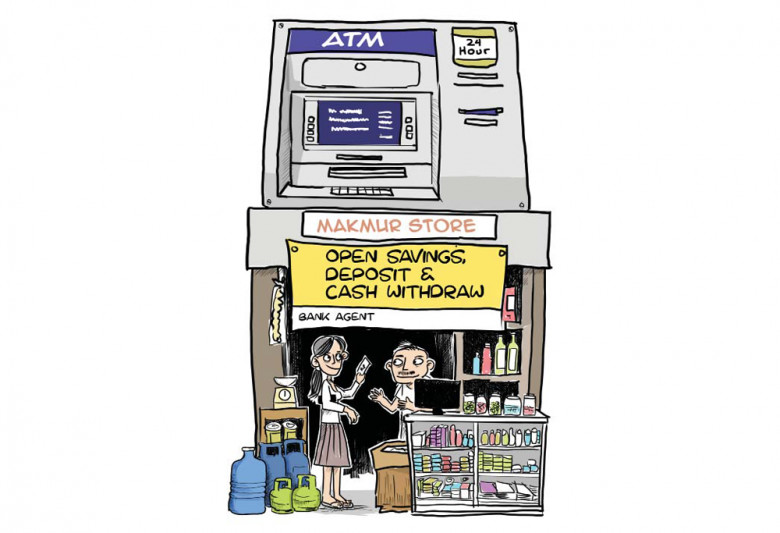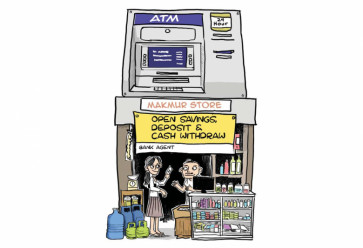Popular Reads
Top Results
Can't find what you're looking for?
View all search resultsPopular Reads
Top Results
Can't find what you're looking for?
View all search resultsBlockchain path to more inclusive world
One of the main causes of financial exclusion is that many of the world’s poor lack proper personal identification and documented property rights. Blockchain technology can help to overcome this by storing tamperproof personal information, unlocking access to financial services while reducing the risk of fraud.
Change text size
Gift Premium Articles
to Anyone
S
ome 2 billion people in the world are unbanked and lack access to useful and affordable financial services. According to the World Bank, this is one of the major barriers to reducing extreme poverty and social inequality.
Yet, of these 2 billion, approximately two-thirds have access to a mobile phone with internet connection. This enables access to emerging blockchain technologies, offering in turn some unique and promising solutions to create a more equal and inclusive world.
Blockchain is an open and decentralized technology that enables electronic transfer of value without intermediaries. By design it is transparent, inclusive and censorship resistant. Because it is decentralized, it empowers individuals, institutions and governments to build democratic technological solutions that are resilient and less prone to manipulation.
As a result the technology has the potential to eliminate divisions caused by social, age and gender gaps, erase geographical, cultural and jurisdictional restrictions and build economic resilience. At the same time it provides a platform for near real-time settlement of trades over a secure network at a much lower cost than traditional solutions.
One of the main causes of financial exclusion is that many of the world’s poor lack proper personal identification and documented property rights. Blockchain technology can help to overcome this by storing tamperproof personal information, unlocking access to financial services while reducing the risk of fraud.
In developing countries, the ability to register and retrieve property rights would increase social mobility and improve living standards. Meanwhile, on a global level, blockchain technologies should increase transparency and fraud detection, potentially reducing corruption and poor management of resources.
This will be of even greater importance in the era of global projects, such as the China-led One Belt One Road Initiative spanning dozens of underdeveloped countries, which demand improved coordination of economic activities.


















